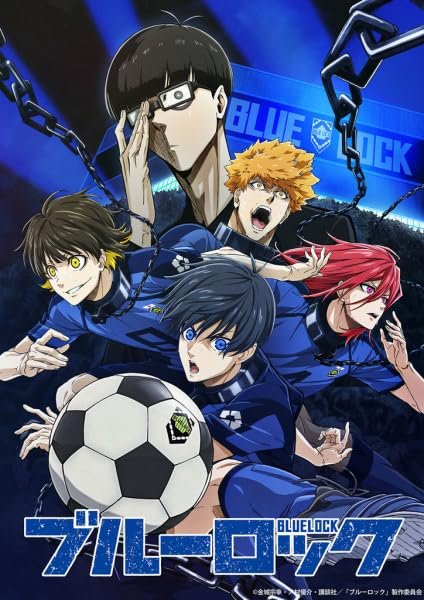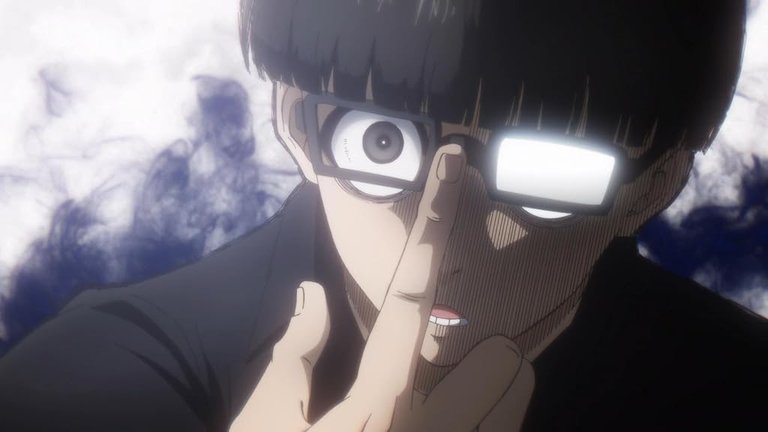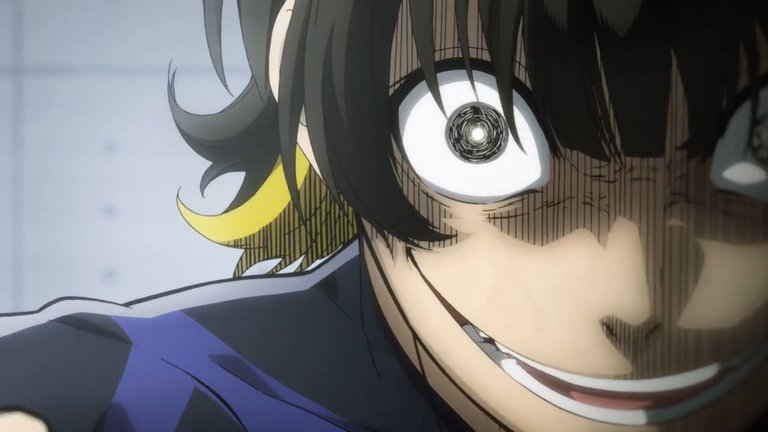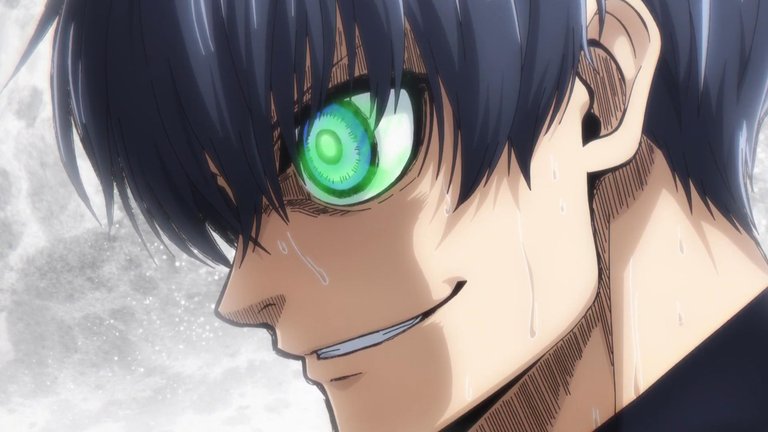English translation
Blue Lock brings with it a different vision of the sport, that dark side that other anime do not explore, the psychology of the champion, and the importance of the ego as a driving force for continuous improvement.
For many people, this anime or manga only shows an institution that trains the most self-centered players, those who seek to shine on their own and take all the credit. A striker who is there to score goals without thinking about his teammates.
The ego, to simplify the work done by philosophers Freud and Jung, is a level of the human psyche made up of our conscious and unconscious desires, feelings, and perceptions with which we identify. The lower levels are also known as the “it”, which are the deepest desires of our unconscious, and the “superego” which is in charge of the cultural and social structures of the human psyche.
The ego is in charge of ordering and shaping our thinking by adding and keeping in place the other two levels.
Blue Lock trae consigo una visión diferente del deporte, esa parte oscura que otros animes no exploran, la psicología del campeón y la importancia del ego como motor impulsor para la mejora continua.
Para muchas personas este anime o manga solo muestra a una institución que forma a los jugadores más egocéntricos, aquellos que buscan brillar por si solos y llevarse todos los méritos. Un goleador que esté ahí para meter goles sin pensar en sus compañeros.
El ego, para simplificar el trabajo realizado por los filósofos Freud y Jung, es un nivel de la psiquis humana formada por nuestros deseos, sentimientos y percepciones conscientes e inconscientes con las cuales nos identificamos. Los niveles inferiores también son conocidos como el ello, que son los deseos más profundos de nuestro inconsciente, y el superyó que se encarga de las estructuras culturales y sociales
El ego se encarga de ordenar y dar forma a nuestro pensar sumando y manteniendo en su lugar a los otros dos niveles.
English translation
The player who seeks to create Kenpachi Ego will do anything to win as long as it is within the rules of the game, one who constantly evolves to get the best out of himself and his team, someone willing to bear the responsibility of winning as well as losing, a pillar for the rest of the players. These characteristics are contrary to those of Japanese society. Japanese society is generally gregarious, so people often see themselves as part of a unit or group where everyone must be equal and no one stands out.
This is why Ego looks for characteristics that we can observe in top-level athletes. Two examples of this in soccer are Cristiano Ronaldo and Leonel Messi who after many sacrifices and efforts are at the top of their sport, taking modern soccer to an impressive quality, feeding back on each other. But this does not end here but expands to the rest of the players of our time who try to usurp their places. Here you will see the highest statistics of goals per season of Luis Suarez and Ronaldinho.
Ronaldinho had his best season in Barcelona with a total of 25 goals in 43 games, however, Luis Suarez in the same team with 49 games played had already scored 53 goals.
Another example, but in athletics is Usain Bolt. The fastest man in the world also has another merit as you can see in this photo and that is that the best runners in history are his contemporaries or those who try to overcome his mark giving a before and after in history.
El jugador que busca crear Kenpachi Ego es aquel que haría cualquier cosa para ganar siempre y cuando sea dentro de las reglas del juego, uno que evolucione constantemente para sacar lo mejor de sí y de su equipo, alguien dispuesto a cargar tanto con la responsabilidad de ganar como de perder, un pilar para el resto de los jugadores. Estas características son contrarias a las de la sociedad japonesa. La que por norma general es gregaria, por lo que las personas a menudo se ven como parte de una unidad o grupo donde todos deben de ser iguales y nadie se destaca.
Por esto Ego busca características que podemos observar en los deportistas de más alto nivel. Dos ejemplos de esto en el futbol son Cristiano Ronaldo y Leonel Messi quienes tras muchos sacrificios y esfuerzos están en la cima de su deporte, llevando al futbol moderno a una calidad impresionante, retroalimentándose el uno del otro. Pero esto no acaba aquí, sino que se expande al resto de los jugadores de nuestra época que intentan usurpar sus lugares. Por aquí verán las estadísticas más altas de goles por temporada de Luis Suarez y Ronaldinho
Ronaldinho tuvo su mejor temporada en el Barcelona con un total de 25 goles en 43 partidos sin embargo Luis Suarez en el mismo equipo con 49 partidos jugados ya había marcado 53 goles.
Otro ejemplo, pero en atletismo es el de Usain Bolt. El hombre más veloz del mundo también tiene otro mérito como pueden ver en esta foto y es que los mejores corredores de la historia son sus contemporáneos o los que intentan superar su marca dando un antes y un después en la historia.
English translation
The psychology of the young man who seeks to be a striker is much more selfish than the rest, showing a greater passion and dedication for the sport. From the first moment with the explanation of ego and how the positions are distributed in the Z team, we notice that the players take positions depending on the individual skills of each one, but beyond this, in the neo-egoistic league, we can see how Gagamaru assumes the position of goalkeeper and Reo as a midfielder. In this same situation, Itochi Sae found himself, hence the reason why Itochi Rin felt hatred for his brother. The person he admired the most bowed down to the outside world and abandoned his ego as a striker.
La psicología del joven que busca ser delantero es mucho más egoísta que la del resto, demostrando una mayor pasión y dedicación por el deporte. Desde el primer momento con la explicación de ego y como se distribuyen las posiciones en el equipo Z notamos que los jugadores toman posiciones dependiendo de las habilidades individuales de cada uno, pero más allá de esto en la liga neo-egoísta podemos ver como Gagamaru asume la posición de portero y Reo como centro campista. En esta misma situación se encontró Itochi Sae de ahí la razón por la que Itochi Rin sintiera odio por su hermano. La persona que más admiraba se doblegó ante el mundo exterior y abandonó su ego como delantero.
English translation
Isagi Youichi begins this story as a young man who lacks confidence but lives with little social pressure. On the field, his insecurities prevented him from realizing his true potential, yet his love of soccer led him to fall into states of frustration and helplessness. His entrance to Blue Lock changed his whole environment and after that also his different vision of the world he loves, turning it into a battlefield for the survival of the fittest. This gave way to a turning point in his psychology, as he was at that moment he would not be able to achieve his dream so he decided to change his mentality to achieve the results he was looking for, something that became a constant, to destroy and rebuild himself to seek improvements. That's when the concept of devouring another player comes in, this is nothing more than taking as many weapons as possible to subdue another who at the time was superior, finding a way to beat the strongest and be the main player of each team in which he found himself.
Isagi is the personification of Blue Lock, no matter how weak you are in the beginning what you are looking for is to reach that mentality, to grow without limits, and thus push the rest of your teammates to improve to try to reach it, becoming the heart of the team.
-Conclusions
Not all egos are effective concerning Blue Lock, this can be seen in Whataru who betrayed the Z team to try to advance on his own, or the case of Barou who in the second stage ended up playing in a two against two because of his toxic mentality, when he should be playing a 5 against 5 at that time. On the other hand, we have the case of Bachira who by entering a comfort zone with Isagi created a team based on emotional dependency that did not allow each other to improve.
Ego can be your biggest enemy, but also your best weapon, it gives us that individuality that makes us special and drives us to devour others to get the best out of ourselves.
Isagi Youichi comienza esta historia siendo un joven carente de confianza, pero que vivía con poca presión social. Dentro del terreno sus inseguridades no lo dejaban aflorar su verdadero potencial, aun así, su amor por el futbol lo llevaba a caer en estados de frustración e impotencia. Su entrada a Blue Lock cambió todo su ambiente y tras esto también su visión diferente del mundo que ama, convirtiéndolo en un campo de batalla por la supervivencia del mas apto. Esto dio paso a un punto de inflexión en su psicología, tal y como se encontraba en ese momento no sería capaz de alcanzar su sueño por lo que tomó la decisión de cambiar su mentalidad para alcanzar los resultados de buscaba, algo que se convirtió en una constante, destruirse y reconstruirse para buscar mejoras. Ahí es cuando entra el concepto de devorar a otro jugador, esto no es más que tomar la mayor cantidad de armas posibles para someter a otro que en su momento era superior, encontrar una manera de vencer al más fuerte y ser el jugador principal de cada equipo en el que se encontrara.
Isagi es la personificación de Blue Lock, no importa que tan débil se sea en un comienzo lo que se busca es alcanzar dicha mentalidad, crecer sin límites y así impulsar al resto de sus compañeros a mejorar para intentar alcanzarlo, convirtiéndose en el corazón del equipo.
—Conclusiones
No todos los egos son efectivos con respecto a Blue Lock esto lo podemos ven en Whataru quien traicionó al equipo Z para intentar avanzar por sí solo, o el caso de Barou que en la segunda etapa terminó jugando en un dos contra dos por su mentalidad tóxica, cuando este debería estar jugando un 5 contra 5 en ese tiempo. Por otra parte, tenemos el caso de Bachira que al entrar en una zona de confort con Isagi crearon un equipo basado en la dependencia emocional que no se permitían mejorar mutuamente.
El ego puede ser tu mayor enemigo, pero también tu mejor arma, nos dota de esa individualidad que nos hace ser especiales y nos impulsa a devorar a otros para sacar lo mejor de nosotros mismo.




Vi este animé el año pasado. Me gustó la verdad, es entretenida. Aunque su premisa me parece algo errada. Construir un jugador en base a un ego, no parece funcional.
Ahora estoy esperando los nuevos capítulos jeje.
Saludos
Creo que el proble es el consepto de ego que las mayoria de las personas tienen,por eso cree este post. Se entenderá mejor mientas trascurran las temporadas.
Creo que el proble es el consepto de ego que las mayoria de las personas tienen,por eso cree este post. Se entenderá mejor mientas trascurran las temporadas.